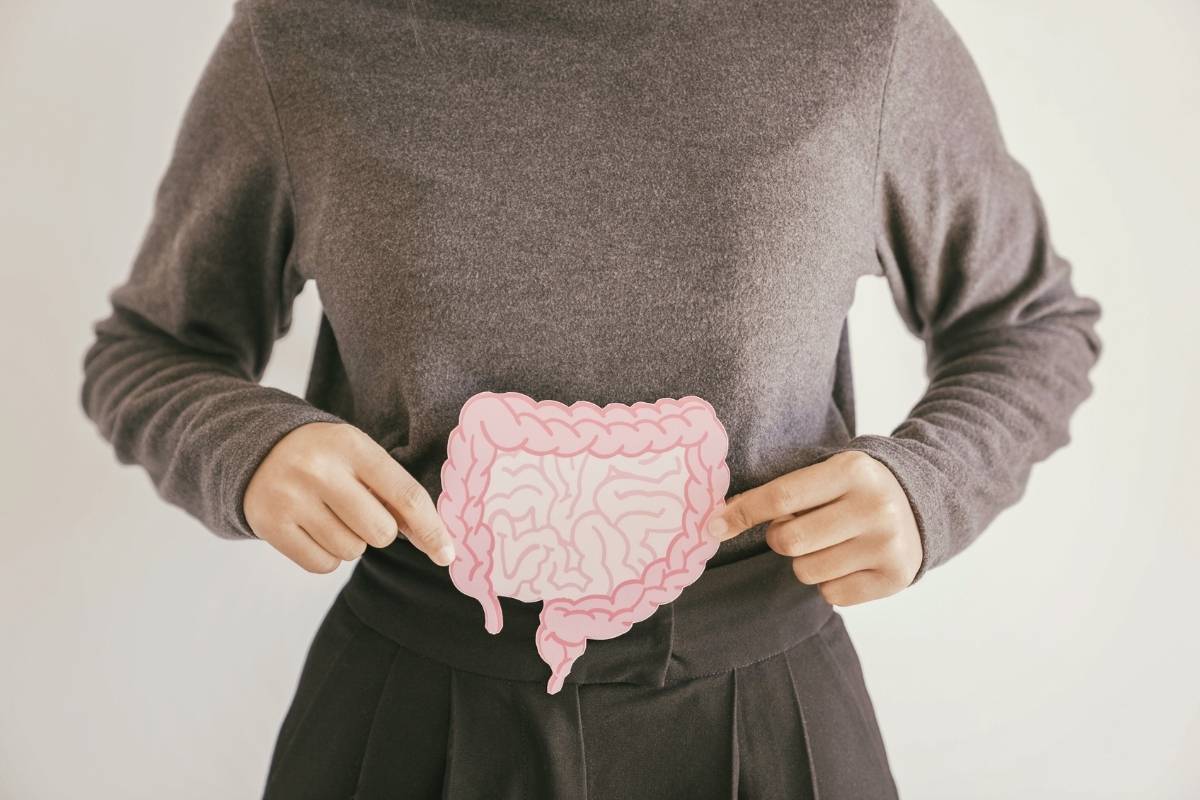When taking probiotics, avoid these foods that can reduce their effectiveness: fizzy drinks (high sugar feeds harmful bacteria), highly processed foods (disrupt bacterial balance), genetically modified foods (may contain herbicides harmful to beneficial bacteria), and processed cooking oils (trigger inflammation). For optimal results, take probiotics on an empty stomach, either 2-3 hours before or after meals, preferably in the morning before breakfast or at night before sleep. Understanding our standards for quality supplements can help you make informed choices.
Quick Facts:
- Timing: Wait 30 minutes to 3 hours after eating before taking probiotics
- With coffee: Take probiotics with water first, then enjoy coffee immediately after
- Medications to avoid: Antifungal medications (antibiotics are generally safe)
- Results timeline: Most people notice improvements within 2-4 weeks
- Best practices: Store properly, take consistently, avoid hot beverages
This guide covers everything you need to know about maximizing probiotic effectiveness through proper timing, dietary choices, and avoiding common mistakes that reduce their benefits. According to Nutrition.gov, proper supplementation requires understanding both what to take and what to avoid.

How Long Should You Wait Between Meals and Taking Probiotics?
Wait no more than 2-3 hours after your last meal before taking probiotics. Give your stomach at least 30 minutes after eating for easier supplement absorption. This timing allows probiotics to travel smoothly from your mouth to your digestive system. The process becomes more effective when your stomach has space to work properly. For those managing weight concerns, proper probiotic timing can support overall digestive efficiency.
This approach ensures probiotic bacteria can move through your stomach quickly to reach their destination. Less obstruction in the digestive process means your probiotics can work more effectively overall. Quick movement helps increase beneficial bacteria levels in your system faster than delayed absorption. According to the NIH, this timing prevents harmful bacteria from building up and causing digestive discomfort. Stomach aches, pains, and bowel problems can result from poor bacterial balance over time. Some people take probiotics to support intimate health and manage bacterial infections naturally. Quick bacterial movement through your body helps these supplements start working sooner in your system.
Can You Drink Coffee When Taking Probiotics?
Many people consider their morning coffee essential for starting busy days peacefully and energetically. Taking probiotics in the morning does not require giving up this important daily ritual. While using coffee to swallow your probiotic supplement is not recommended for safety reasons. Taking supplements with water instead of other beverages reduces the risk of throat irritation significantly. The Office of Dietary Supplements confirms that proper supplement intake methods matter for effectiveness.
Key points about coffee and probiotic interaction include:
- Take your probiotic supplement with clean water first, then drink coffee afterward immediately
- Using coffee to swallow supplements can increase risk of throat burning or irritation
- Waiting between your supplement and coffee is completely optional based on personal preference
- Coffee consumption does not interfere with probiotic function when taken before or after
- Research shows no negative interactions between coffee and probiotic effectiveness in adults
You can take your probiotic supplement with a full glass of clean water first. Continue drinking your prepared coffee immediately afterward without any concerns about supplement effectiveness. Coffee does not interfere with probiotic function when consumed before, during, or after supplementation. This flexibility allows you to maintain your morning routine while supporting your digestive health. Studies confirm that coffee consumption and probiotic supplements work well together without reducing benefits. For those seeking additional energy support, this combination can be particularly beneficial.
Which Medications Should You Avoid Taking With Probiotics?
Taking probiotics alongside certain medications or prescription drugs is not recommended for safety reasons. Combining both together could cause probiotics to interfere with your medication's intended effectiveness significantly. The FDA recommends always discussing potential probiotic supplements with your doctor or prescribing physician before starting any routine. This conversation ensures both supplements and medications work safely together without creating unwanted interactions. For specialized needs like prenatal health, professional guidance becomes even more crucial.
Important medication interactions to consider include:
- Antifungal medications like clotrimazole, ketoconazole, and griseofulvin interact negatively with probiotics
- These combinations should be avoided to prevent reducing either treatment's effectiveness
- Antibiotics are generally considered safe when taken together with probiotic supplements
- Research suggests probiotics may actually increase antibiotic effectiveness rather than interfering
- Your probiotic packaging should clearly state if safe during antibiotic treatment
Your healthcare provider can determine if probiotics are appropriate for your current medication schedule. Antifungal medications can interact negatively with probiotic supplements in your system. Antibiotics present a different situation since probiotics are generally considered safe when taken together. No evidence currently suggests probiotics will interfere with antibiotic effectiveness in most healthy individuals. Many doctors now recommend taking both probiotics and antibiotics together for better outcomes. For those interested in specialized probiotic strains, Lactobacillus gasseri offers unique benefits worth exploring.
When Is The Best Time To Take Probiotics?
No single best time exists for taking probiotics since they remain equally effective throughout the day. Morning and afternoon timing both provide similar benefits for most people taking these supplements regularly. Many recommendations lean toward taking probiotics first thing in the morning for convenience and consistency. Research from Mayo Clinic suggests the most optimal time might be in the morning before eating breakfast. Those focused on anti-aging benefits often prefer morning supplementation as part of their wellness routine.
Optimal timing recommendations include:
- Take probiotics on an empty stomach for maximum effectiveness and absorption rates
- Most effective when taken 2-3 hours before or after meals for optimal results
- Morning before breakfast or nighttime before sleep both work equally well
- This timing allows live bacteria to travel directly to your digestive system
- Food processing can slow down bacterial movement and reduce supplement effectiveness
The same research indicates taking them before bedtime at night works just as effectively. This flexibility means timing probiotics around your daily schedule should work well for most people. Food processing in your stomach can slow down bacterial movement and reduce supplement effectiveness. Take one probiotic on an empty stomach either first thing in the morning or before sleep. This approach ensures optimal efficiency and helps you maintain a consistent daily supplementation routine for better results. At Naturespan, we offer various formulations to suit different schedules and preferences. Public Health organizations emphasize the importance of consistent supplementation timing.

How To Maximize Your Probiotic Results
Getting the most from your probiotic supplements requires understanding how they work in your system. Many people start taking probiotics but don't see the results they expect quickly. Small changes in your routine can significantly improve how well these supplements work effectively. Understanding what to expect helps you track progress and maintain realistic expectations for improvement. Avoiding common mistakes ensures you don't accidentally reduce your supplement's potential benefits over time. Creating consistency in your daily routine allows beneficial bacteria to establish stable colonies successfully. For comprehensive immune defense, combining probiotics with other supportive nutrients enhances overall effectiveness.
The key lies in creating optimal conditions for beneficial bacteria to thrive in your digestive system. Proper timing, storage, and lifestyle choices all contribute to better probiotic supplement effectiveness significantly. Many factors can either support or interfere with how well these supplements work. Learning to recognize positive changes helps you understand when your probiotics are working properly. Simple adjustments to your daily habits can make a substantial difference in results. Supporting your probiotic routine with complementary lifestyle choices maximizes their potential benefits for gut health. The CDC emphasizes that maintaining overall health through proper nutrition supports probiotic effectiveness. Those with specific concerns about liver and lung support should consider how digestive health impacts overall organ function.
Signs Your Probiotics Are Working Effectively
Recognizing positive changes helps you track your probiotic supplement progress over time effectively. Most people notice improvements in their digestive comfort within the first few weeks of use. Regular bowel movements become more consistent and comfortable when probiotics start working properly. Reduced bloating and gas after meals often indicates that beneficial bacteria are establishing themselves. MedlinePlus provides additional guidance on recognizing digestive health improvements.
Key indicators that your probiotics are working include:
- Improved digestive regularity with less discomfort during and after bathroom visits
- Reduced bloating and gas production, especially after eating larger or heavier meals
- Better energy levels throughout the day without the usual afternoon digestive sluggishness
- Less frequent stomach upset or sensitivity to foods you previously found challenging
- Improved sleep quality as your digestive system processes food more efficiently at night
Energy levels often improve as your digestive system becomes more efficient at processing nutrients. Some people report better mood stability when their gut health improves with consistent supplementation. Skin clarity may also improve as your internal bacterial balance becomes healthier over time. These changes typically develop gradually rather than appearing overnight in most healthy individuals. Consistent daily supplementation usually produces more noticeable results than sporadic use of probiotic supplements. For comprehensive wellness support, combining probiotics with other targeted supplements can enhance results. Studies on environmental health factors show that external toxins can impact gut bacteria, making probiotic supplementation even more valuable.
Common Mistakes That Reduce Probiotic Benefits
Several everyday habits can significantly reduce how well your probiotic supplements work in practice. Taking probiotics with hot beverages can kill beneficial bacteria before they reach your digestive system. Inconsistent timing makes it harder for bacterial colonies to establish themselves in your system effectively. Storing supplements improperly can reduce their potency long before their expiration date arrives. According to nutrition experts, proper storage is crucial for maintaining probiotic viability. Supporting overall health through cardiovascular care can also improve probiotic effectiveness.
Frequent mistakes that limit probiotic effectiveness include:
- Taking probiotics with hot drinks like coffee or tea that can kill live bacteria
- Inconsistent daily timing that doesn't allow bacterial colonies to establish stable patterns
- Poor storage conditions like leaving bottles in hot cars or humid bathroom cabinets
- Taking probiotics immediately after consuming alcohol which can harm beneficial bacteria significantly
- Not completing the full recommended course duration before evaluating supplement effectiveness
Alcohol consumption can interfere with how beneficial bacteria function in your digestive system effectively. Stress and poor sleep patterns may also reduce how well probiotics work in your body. Combining probiotics with certain foods can either enhance or reduce their effectiveness depending on timing. Not drinking enough water throughout the day can make it harder for supplements to work. Understanding these common pitfalls helps you avoid reducing your supplement's potential benefits unnecessarily. Those concerned about eye and vision health should note that gut health can impact nutrient absorption crucial for eye function.
How Long Before You See Probiotic Results
Most people begin noticing subtle improvements in their digestive comfort within two to four weeks. Individual results vary based on your starting gut health and consistency of supplement use. Some people experience benefits within the first week while others need longer periods. Your current diet and lifestyle habits can influence how quickly you see positive changes. If you have questions about your specific timeline, feel free to contact us for personalized guidance.
Timeline expectations for probiotic benefits include:
- Week 1-2: Possible mild digestive changes as your system adjusts to new bacteria
- Week 3-4: More consistent bowel movements and reduced bloating after meals typically develop
- Week 5-8: Improved energy levels and better overall digestive comfort become more noticeable
- Week 9-12: Long-term benefits like better nutrient absorption and stable gut health establish
- Beyond 12 weeks: Maximum benefits typically achieved with continued consistent daily supplementation
Factors like age, diet quality, and stress levels can affect how quickly you experience results. People with more digestive issues initially may take longer to see significant improvements. Maintaining consistent daily supplementation produces better long-term results than irregular use patterns. Some benefits may appear quickly while others develop gradually over several months of use. Patience and consistency remain the most important factors for achieving optimal probiotic supplement results. To learn more about our company and commitment to quality, visit our information page.
Conclusion
Taking probiotics successfully involves more than simply swallowing a daily supplement and hoping for results. Understanding proper timing, avoiding interfering foods and medications, and recognizing signs of effectiveness are crucial steps. Your daily habits significantly impact how well these beneficial bacteria can establish themselves in your system. Small adjustments to your routine can dramatically improve supplement effectiveness and help you achieve better outcomes. Creating optimal conditions through proper storage, consistent timing, and supportive lifestyle choices maximizes your investment in gut health.
Remember that probiotic benefits develop gradually over weeks and months rather than appearing overnight magically. Patience and consistency remain your most powerful tools for achieving lasting digestive health improvements through supplementation. Avoiding common mistakes like taking supplements with hot beverages or storing them improperly protects your investment. The key to success lies in supporting your probiotic routine with complementary healthy choices daily. Start implementing these strategies today to maximize your probiotic results and support long-term gut health naturally.
FAQs
Can I take probiotics with other supplements at the same time?
Most probiotics can be safely taken with other supplements without reducing their effectiveness significantly. Always check with your healthcare provider if you're taking multiple supplements to ensure safety.
Do probiotics need to be refrigerated to stay effective?
Many probiotic supplements require refrigeration to maintain their potency and live bacterial counts effectively. Always check the storage instructions on your specific product label for best results.
Is it normal to feel worse when first starting probiotics?
Some people experience mild digestive changes during the first week as their system adjusts. These symptoms typically resolve as beneficial bacteria establish themselves in your digestive system.
Can children safely take probiotic supplements daily?
Children can often take probiotics safely, but dosages and strains may differ from adults. Always consult with a pediatrician before starting any probiotic supplement routine for children.
Will probiotics help if I eat unhealthy foods regularly?
Probiotics work best when combined with a balanced diet that supports beneficial bacteria growth. Poor dietary choices can limit their effectiveness and slow your progress toward better gut health.




